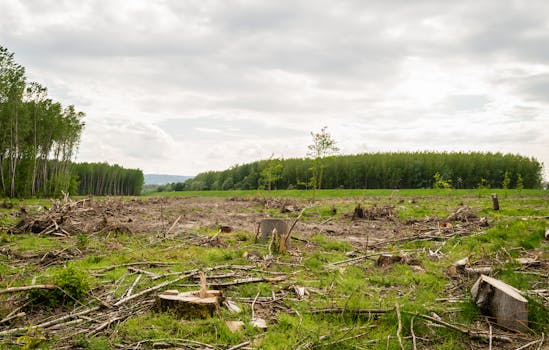
Climate change is a pressing issue that affects global ecosystems in profound ways. The rise in global temperatures, caused by human activities such as burning fossil fuels and deforestation, is disrupting the delicate balance of nature. This article delves into the various impacts of climate change on ecosystems worldwide.
Understanding Climate Change

Climate change refers to significant changes in global temperatures and weather patterns over time. While climate change is a natural phenomenon, recent trends are largely driven by human actions. The increase in greenhouse gas emissions has led to a rise in average temperatures, affecting various ecosystems.
The Effects on Biodiversity

Biodiversity is crucial for the resilience of ecosystems. Climate change threatens many species, leading to extinction and a decline in biodiversity. As temperatures rise, many species are forced to migrate to cooler areas, disrupting existing ecosystems. For instance, polar bears are facing habitat loss due to melting ice caps, while coral reefs are suffering from bleaching due to warmer ocean temperatures.
Impact on Habitats

Changing climates can alter habitats significantly. Forests, wetlands, and grasslands are all experiencing transformations due to climate change. Increased temperatures can lead to longer droughts and more intense storms, which can devastate these habitats. For example, the Amazon rainforest, often referred to as the ‘lungs of the Earth,’ is facing increased deforestation and altered rainfall patterns, threatening its biodiversity.
Impact on Marine Ecosystems

Marine ecosystems are also heavily impacted by climate change. Ocean acidification, caused by increased carbon dioxide absorption, is affecting marine life, particularly shellfish and coral reefs. Warmer waters are also leading to shifts in fish populations, affecting global fisheries and food security for millions of people who rely on fish as a primary protein source.
Conclusion

The impact of climate change on global ecosystems is profound and far-reaching. It affects biodiversity, habitats, and marine life, leading to significant ecological disruptions. Addressing climate change requires collective action to reduce greenhouse gas emissions and protect vulnerable ecosystems. As stewards of the planet, we must work towards sustainable solutions to mitigate these impacts and preserve our natural world for future generations.



